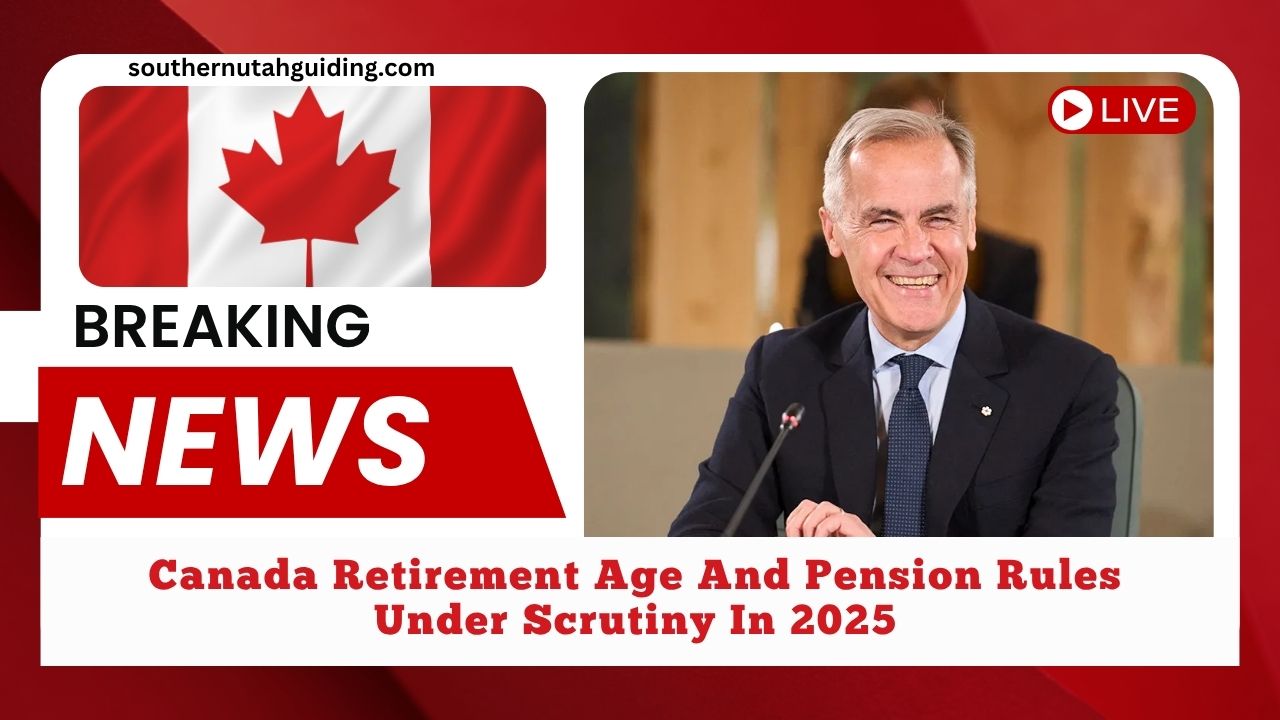As Canada moves through 2025, the retirement age and pension withdrawal rules have become a national conversation, with mounting pressure on the federal government to reassess existing policies.
With Canadians living longer and the cost of living rising, this debate touches nearly every citizen—especially those nearing the age of 60 or older.
From Canada Pension Plan (CPP) sustainability to Old Age Security (OAS) stress, the calls for reform are growing louder. Let’s explore the proposed changes, their potential impacts, and how Canadians can prepare.
Why the Retirement Age Debate Is Heating Up
Several socio-economic pressures are driving the push for pension reform in 2025:
- Aging Population: Over 20% of Canadians will be 65 or older by 2030.
- Longevity: People are living longer, creating a longer post-retirement dependency on public pensions.
- High Living Costs: Inflation and housing prices make it harder for seniors to survive without additional income.
- CPP & OAS Concerns: There are growing fears about the long-term sustainability of Canada’s pension systems.
Key Proposals for 2025 Retirement Reforms
Government officials and policy think tanks have floated several major proposals this year to modernize retirement in Canada:
- Raise the retirement age from 65 to 67 by 2030.
- Allow partial pension withdrawal from age 60 for those who continue part-time work.
- Implement higher CPP contributions for high-income earners.
- Offer pension deferral bonuses to incentivize working past 65.
- Expand tax credits for seniors who remain in the workforce after 65.
These proposals are part of the broader pension withdrawal policy updates 2025, meant to keep the system fair and financially viable.
Proposed Retirement Policy Updates – 2025
| Policy Proposal | Current Status | Proposed Change | Who’s Affected |
|---|---|---|---|
| Retirement Age | 65 | 67 by 2030 | Workers under age 60 |
| Partial Pension Withdrawal | From age 60 | With flexible work options | Early retirees |
| CPP for High-Income Earners | Standard contribution | Increased contribution | High-income workers |
| Pension Deferral Bonuses | Optional, limited | Higher bonus incentives | Seniors retiring after 65 |
| Tax Credits for Seniors Working | Available but limited | Expanded tax incentives | Seniors still employed past 65 |
Public Response and Political Reactions
The Canadian public is divided. Urban and white-collar workers often support the idea of working longer, especially with financial incentives. Meanwhile, many blue-collar and rural workers argue that a delayed retirement age is unfair, particularly for those in physically demanding jobs.
Organizations like the Canadian Association of Retired Persons (CARP) emphasize that reforms must not harm low-income seniors or those with health limitations.
The debate has also spilled into Parliament, where some parties support changes while others warn of a pension crisis if nothing is done.
What This Means for You
Whether you’re retired, close to retirement, or just starting your career, these proposed changes may affect you:
- Aged 60–64: May face delayed full benefits but could benefit from flexible withdrawal options.
- Current retirees: No immediate changes, but future adjustments to benefit indexing and eligibility may arise.
- Young workers: Will likely need to contribute more and retire later.
Canada’s retirement age and pension rules are at a critical crossroads in 2025. With a growing senior population and economic constraints, the government is under immense pressure to act. While no official law has changed yet, the coming months may redefine how Canadians plan for retirement.
Canadians should stay informed, track announcements from the CRA and Service Canada, and evaluate their retirement planning strategies in light of these evolving policies.
FAQs
What is the current retirement age in Canada in 2025?
The standard retirement age is still 65, though early pension access is possible from age 60 with reduced benefits.
Will changes to CPP affect current retirees?
No immediate changes are expected, but future adjustments may influence benefit amounts or eligibility for newer retirees.
Can I still retire early in Canada?
Yes, early retirement at age 60 is still allowed, though you will receive reduced pension payouts compared to waiting until 65.

